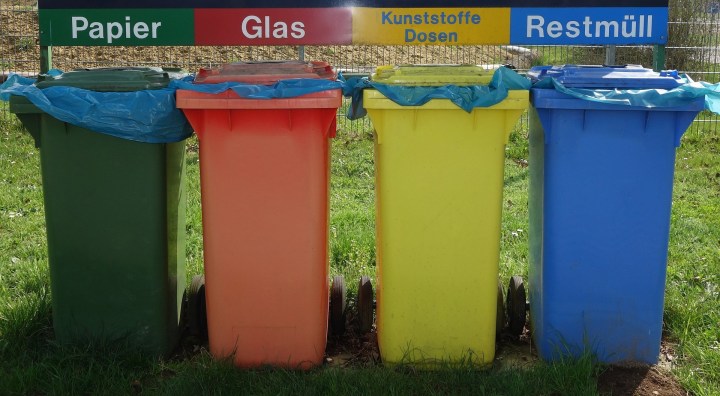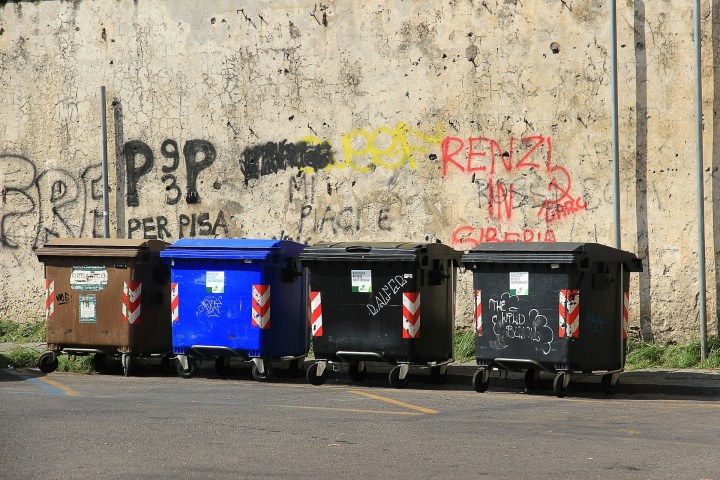Many discussions about the large influx of refugees to Germany and other European countries around 2015 focus on what migrants don’t know. Migrant knowledge figures as a category of absence: lack of language skills, missing cultural sensitivity, no understanding of the host country’s bureaucracy. According to German Willkommenskultur, a glossy feel-good term describing the efforts to welcome new arrivals, these knowledge gaps are to be closed with Bildung, the enlightenment notion of education and character formation. In language courses, gender trainings, and cultural orientations across the country, asylum seekers are familiarized with their new environment. Due to the high volume of learners, many programs are run or supplemented by volunteers, and the knowledge of these “native informants” is not typically questioned. As a result, my research demonstrates that many initiatives inadvertently betray an unreflective understanding of cultural identity—showing symptoms of the white savior complex and cultivating a normative sense of shibboleth (the idea that certain knowledge is required for acceptance in a community).1

Perhaps surprisingly, one widespread type of refugee program in Germany focuses on environmental education (Umweltbildung).2 Many of these initiatives were initially state-funded, and a website that collects and connects them shows their wide variety: They range from joint gardening and cooking projects to environmental expertise badging courses, and from planting trees and cleaning up rivers to recycling classes. Signaling the importance of environmentalism for new arrivals in Germany reflects a particular culture of environmentalism, which the director of a local trash removal company that sponsors one of these recycling courses describes succinctly: “In Germany, recycling has become a cultural value.”3 These projects therefore lend themselves particularly well to a cultural analysis of environmentalism and its entanglement with discourses of national identity and belonging in Germany.
The media coverage and self-depictions of these programs tend to propagate the false, generalized idea that migrants, a seemingly homogenous group, know nothing about environmentalism and, by extension, do not care about protecting the planet. Many media depictions reinforce this harmful prejudice with anecdotes and imagery meant to highlight the importance of environmental education. For instance, the director of instruction for German as a foreign language in an adult education school explains, “in Tunisia . . . trash bags pile up for days by the side of the road.”4 This image would horrify stereotypical German readers who consider the correct usage of their complex, color-coded recycling system a measure of one’s morality and do not seem to realize how much of German trash, and even recycling, is shipped to landfills and burn sites in other countries.5

Similarly, another article about an environmental education project for refugees opens with a description of overflowing trash cans surrounding asylum housing, a popular motif that merges the notions of refuge and refuse:
It is unfortunately a familiar image: There is trash all over the grounds of a housing area for refugees in the district of Fürstenfeldbruck. Scattered on the paths, between the bikes parked in front of the house, and on the grassy areas around the building. Even outside of the fence there is trash. Paper, plastic bags, packaging materials. The trash cans are spilling over. They contain all the residue of Western consumerist everyday life. Unseparated! Admittedly, the locals are also not always models of reducing and recycling trash. But people from other cultures know neither the rules for it, nor their purpose. And that can lead to problems.6
This imagery suggests that just like unsorted trash, these humans are out of place, “outside the fence,” “spilling over,” and “unseparated.” They are accused of partaking in consumer capitalism, specifically not knowing how to dispose of its evidence correctly, unlike their “native” neighbors, whose shortcomings appear as mere misdemeanors. The root of the problem is traced to a generalized lack of knowledge, yet without absolving the uninformed: “people from other cultures know neither the rules . . . nor their purpose.” The article goes on to champion environmental education as the solution to the ominously vague “problems” expressed in the last sentence of the opening passage, but ultimately, the subtext equates refugees with refuse and portrays migrants as disruptions of the German cultural status quo. In my research about articles like these (see note 1), it becomes clear that the issue at stake is not environmentalism but normative notions of German culture and belonging. In several cases, the pieces are a platform for racism that is reinforced by a sense of environmentalist superiority.

While many of the environmental programs have good intentions and successful outcomes, their presentation in the media on both the left and the right of the political spectrum champions German environmentalism as a cultural project. The knowledge transmitted in these education initiatives is distinctly national, and sometimes even more specifically local. Yet learning how to recycle in Bavaria or Berlin does not an environmentalist make. Rather, the learning process exposes issues of accessibility and usage in existing environmental systems like recycling—and therefore highlights cracks in the record of German environmental achievement, which is one of few areas of unabashed German pride.7

Migrant knowledge, then, can point to flaws in the system and be crucial to improving it. Yet it is difficult for migrant voices to be heard and for their knowledge to be taken seriously. Media platforms that let new arrivals speak for themselves, as experts of their knowledge, and literary works about the experience of settling and living in Germany can help with making some societal blind spots visible and a matter of public discourse.8 In regard to environmental education, however, one apparent connection bears repeating more loudly: Most of those who have been forced to leave their home know first-hand how to manage resource poverty and leave a small footprint on this planet. In Germany, a country with several so-called “refugee crises” in living memory (post–World War II and in the early 1990s), many will remember these shared lessons. It’s time to listen and attend to this knowledge for a climate future that will make migrants of us all.

Joela Jacobs is Assistant Professor of German Studies at the University of Arizona and founder of the Literary and Cultural Plant Studies Network. Her Twitter handle is @hissista.
- See Joela Jacobs, “It’s Not Easy Being Green: Integrating Refugees in German Environmentalist Culture,” Otago German Studies 28 (2017): 180–98 and my forthcoming article on “Umweltschutz als Moralkeule: The German Past, the Refugee Present, and the Planet’s Future” in Colloquia Germanica. ↩︎
- In public German discourse, the use of the term Flüchtlinge (fleeing ones) for refugees has increasingly turned into Geflüchtete (those who have fled) in order to highlight that they have arrived. This arguably less stigmatizing distinction is difficult to make in English. In this blog post, I use “refugee” where public discourse, programs, media reporting, or people do in the original German (e.g., Flüchtlingsprogramm, Flüchtlingskrise, Umweltbildung mit Flüchtlingen ). The much broader term “migrant” equally suspends individuals in perpetual motion to fix them in an outsider position, and it calls up the problematic concept of Migrationshintergrund (migration background) in German, which tends to mark people as “not quite German” for deviating from the white, Christian, eurolingual sterotype. The question of belonging is inscribed and negotiated in language—an inescapable part of “migrant knowledge.” See also the glossary of Neue deutsche Medienmacher (https://glossar.neuemedienmacher.de/) for terminology details and alternatives. ↩︎
- Achim Messerschmidt, “Flüchtlinge lernen Mülltrennung: Hilfe bei den Hürden des Alltags,” Eckernförder Zeitung, October 15, 2015, http://www.shz.de/lokales/eckernfoerder-zeitung/hilfe-bei-den-huerden-des-alltags-id10956726.html. All translations from German in this post are by the author. ↩︎
- Messerschmidt, “Flüchtlinge.” ↩︎
- The following two articles show different ways of describing the same data, while the third provides a more specific, recent update: Carolin Wahnbaeck, “Recycelt, verbrannt und exportiert: Wo landet unser Müll?,” Utopia, June 22, 2018, https://utopia.de/ratgeber/recycling-verbrannen-und-exportieren-wo-landet-unser-muell/; Henning Wilts, “Was passiert mit unserem Müll? Nationaler Müllkreislauf und internationale Müllökonomie,” Bundeszentrale für politische Bildung, November 30, 2018, http://www.bpb.de/apuz/281497/was-passiert-mit-unserem-muell; Inka Reichert, “So wirkt sich Chinas Einfuhrverbot auf unseren Plastikmüll aus,” Quarks, April 29, 2019, https://www.quarks.de/umwelt/muell/so-wirkt-sich-chinas-einfuhrverbot-auf-unseren-plastikmuell-aus/. ↩︎
- Herbert Hackl, “Recyclingkurse für Migranten: Mühsame Müllregeln,” Bayerischer Rundfunk, May 30, 2016, https://web.archive.org/web/20160531115933/http://www.br.de/nachrichten/migranten-umwelt-bildung-102.html (retrieved via the Internet Archive Wayback Machine). ↩︎
- As an effect of Vergangenheitsbewältigung, or “dealing with the (Nazi) past,” expressions of national pride are generally frowned upon in Germany; however, in the contexts of soccer and, arguably, environmentalism, a certain amount of pride seems to be permitted. ↩︎
- There are too many great authors to name without forgetting important voices, so I will exemplarily recommend the literary work of Sharon Dodua-Otoo, Olga Grjasnowa, and Abbas Khider as well as point to the 2019 collection Eure Heimat ist unser Albtraum, edited by Fatma Aydemir and Hengameh Yaghoobifarah. ↩︎
